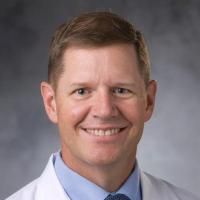Females have Lower Knee Strength and Vertical Ground Reaction Forces During Landing than Males Following Anterior Cruciate Ligament Reconstruction at the Time of Return to Sport.
Date
2022-01
Journal Title
Journal ISSN
Volume Title
Repository Usage Stats
views
downloads
Citation Stats
Abstract
Purpose
There is a high rate of second anterior cruciate ligament (ACL) injury (ipsilateral graft or contralateral ACL) upon return-to-sport (RTS) following ACL reconstruction (ACLR). While a significant amount of epidemiological data exists demonstrating sex differences as risk factors for primary ACL injury, less is known about sex differences as potential risk factors for second ACL injury. The purpose of this study is to determine if there are sex-specific differences in potential risk factors for second ACL injury at the time of clearance for RTS.Methods
Ten male and eight female athletes (age: 20.8 years ±6.3, height: 173.2 cm ±10.1, mass: 76.6 kg ±18.3) participated in the study following ACLR at time of RTS (mean 10.2 months). Performance in lower extremity isokinetic and isometric strength testing, static and dynamic postural stability testing, and a single leg stop-jump task was compared between the sexes.Results
Normalized for body weight, males had significantly greater isokinetic knee flexion (141±14.1 Nm/kg vs. 78±27.4 Nm/kg, p=0.001) and extension strength (216±45.5 Nm/kg vs. 159±53.9 Nm/kg, p=0.013) as well as isometric flexion (21.1±6.87% body weight vs. 12.5±5.57% body weight, p=0.013) and extension (41.1±7.34% body weight vs. 27.3±11.0% body weight, p=0.016) strength compared to females. In the single-leg stop jump task, males had a greater maximum vertical ground reaction force during landing (332±85.5% vs. 259±27.4% body weight, p=0.027) compared to females.Conclusions
Based on these results, there are significant differences between sexes following ACLR at the time of RTS. Lower knee flexion and extension strength may be a potential risk factor for second ACL injury among females. Alternatively, the increased maximum vertical force observed in males may be a potential risk factor of second ACL injury in males. Although these results should be interpreted with some caution, they support that rehabilitation programs in the post-ACLR population should be individualized based on the sex of the individual.Level of evidence
Level 3.Type
Department
Description
Provenance
Citation
Permalink
Published Version (Please cite this version)
Publication Info
Sullivan, Zachary B, Barrie S Sugarman, Mallory S Faherty, Carrie Killelea, Dean C Taylor, Daniel Le, Alison P Toth, Jonathan C Riboh, et al. (2022). Females have Lower Knee Strength and Vertical Ground Reaction Forces During Landing than Males Following Anterior Cruciate Ligament Reconstruction at the Time of Return to Sport. International journal of sports physical therapy, 17(4). pp. 556–565. 10.26603/001c.35575 Retrieved from https://hdl.handle.net/10161/26549.
This is constructed from limited available data and may be imprecise. To cite this article, please review & use the official citation provided by the journal.
Collections
Scholars@Duke

Dean Curtis Taylor
Dr. Dean Taylor is a Sports Medicine Orthopaedic Surgeon whose practice and research interests include shoulder instability, shoulder arthroscopy, knee ligament injuries, meniscus injuries, knee cartilage injuries, and ACL injuries in adults and children. He attended the United States Military Academy at West Point and completed his medical training and residency at Duke University. Dr. Taylor went on to be a part of the John Feagin West Point Sports Medicine Fellowship, retired from the United States Army at the rank of Colonel, and returned to Duke in 2006.

Alison Patricia Toth
Dr. Toth specializes in sports medicine with a focus on anterior cruciate ligament (ACL) and multi-ligament knee reconstruction, knee and shoulder arthroscopy, shoulder impingement and instability, rotator cuff tears, articular cartilage healing and repair; meniscus healing and repair; patella dislocation, and cell and molecular biology approaches to the treatment of musculoskeletal injuries.

Lee Harold Diehl

Jocelyn Ross Wittstein

Annunziato Amendola
Chief of Sports Medicine
Unless otherwise indicated, scholarly articles published by Duke faculty members are made available here with a CC-BY-NC (Creative Commons Attribution Non-Commercial) license, as enabled by the Duke Open Access Policy. If you wish to use the materials in ways not already permitted under CC-BY-NC, please consult the copyright owner. Other materials are made available here through the author’s grant of a non-exclusive license to make their work openly accessible.
